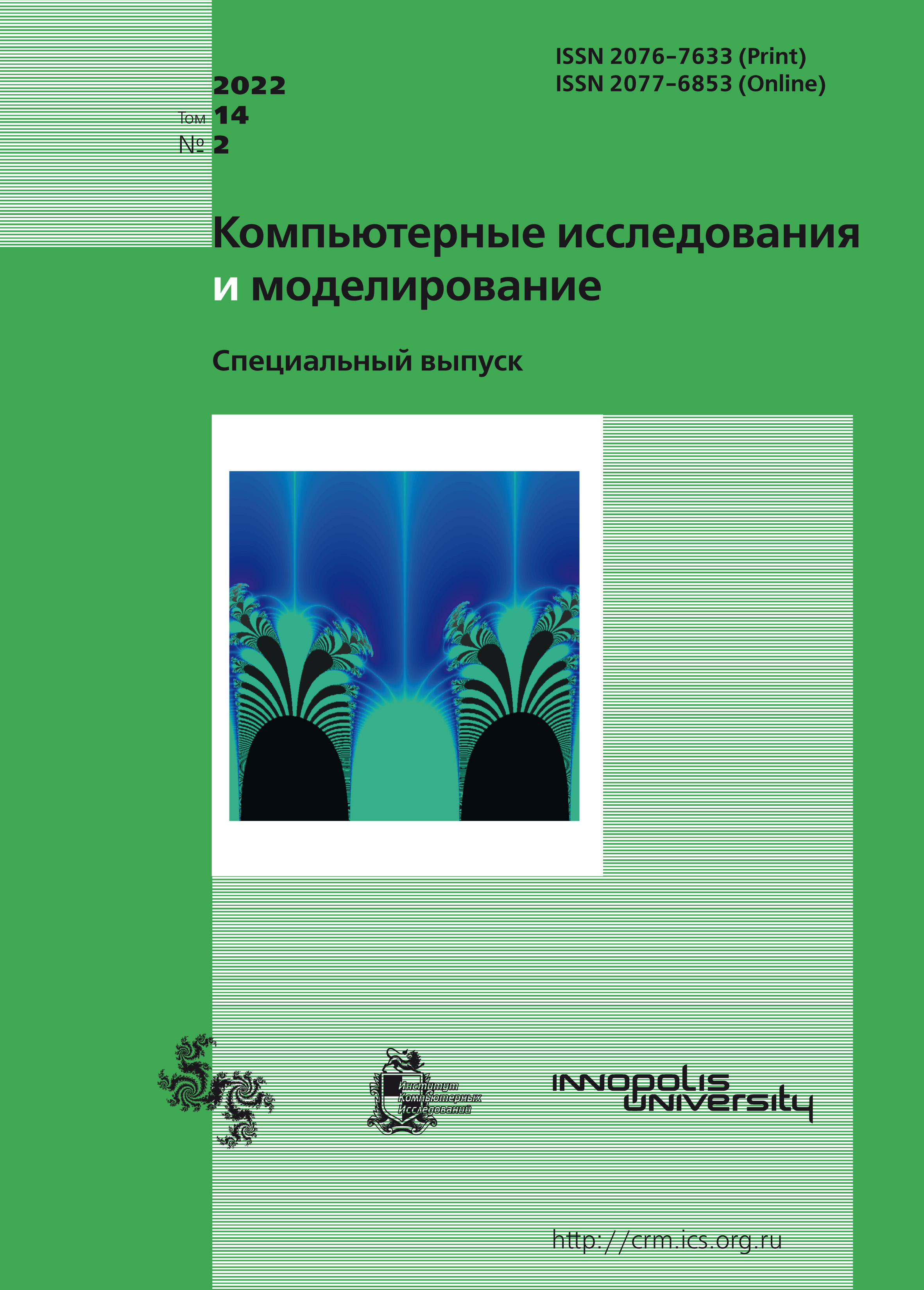All issues
- 2025 Vol. 17
- 2024 Vol. 16
- 2023 Vol. 15
- 2022 Vol. 14
- 2021 Vol. 13
- 2020 Vol. 12
- 2019 Vol. 11
- 2018 Vol. 10
- 2017 Vol. 9
- 2016 Vol. 8
- 2015 Vol. 7
- 2014 Vol. 6
- 2013 Vol. 5
- 2012 Vol. 4
- 2011 Vol. 3
- 2010 Vol. 2
- 2009 Vol. 1
An approach for the nonconvex uniformly concave structured saddle point problem
 pdf (195K)
pdf (195K)
Recently, saddle point problems have received much attention due to their powerful modeling capability for a lot of problems from diverse domains. Applications of these problems occur in many applied areas, such as robust optimization, distributed optimization, game theory, and many applications in machine learning such as empirical risk minimization and generative adversarial networks training. Therefore, many researchers have actively worked on developing numerical methods for solving saddle point problems in many different settings. This paper is devoted to developing a numerical method for solving saddle point problems in the nonconvex uniformly-concave setting. We study a general class of saddle point problems with composite structure and H\"older-continuous higher-order derivatives. To solve the problem under consideration, we propose an approach in which we reduce the problem to a combination of two auxiliary optimization problems separately for each group of variables, the outer minimization problem w.r.t. primal variables, and the inner maximization problem w.r.t the dual variables. For solving the outer minimization problem, we use the Adaptive Gradient Method, which is applicable for nonconvex problems and also works with an inexact oracle that is generated by approximately solving the inner problem. For solving the inner maximization problem, we use the Restarted Unified Acceleration Framework, which is a framework that unifies the high-order acceleration methods for minimizing a convex function that has H\"older-continuous higher-order derivatives. Separate complexity bounds are provided for the number of calls to the first-order oracles for the outer minimization problem and higher-order oracles for the inner maximization problem. Moreover, the complexity of the whole proposed approach is then estimated.
Copyright © 2022 Alkousa M.S., Gasnikov A.V., Dvurechensky P.E., Sadiev A.A., Razouk L.Ya.
Indexed in Scopus
Full-text version of the journal is also available on the web site of the scientific electronic library eLIBRARY.RU
The journal is included in the Russian Science Citation Index
The journal is included in the RSCI
International Interdisciplinary Conference "Mathematics. Computing. Education"






